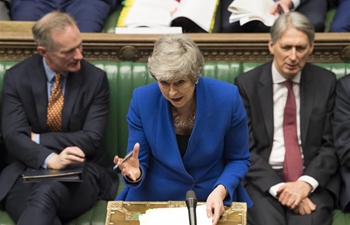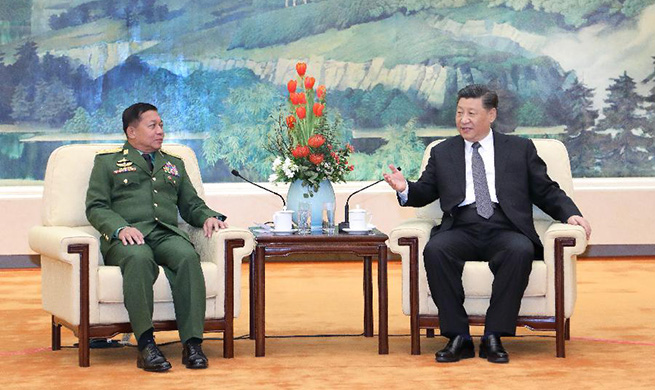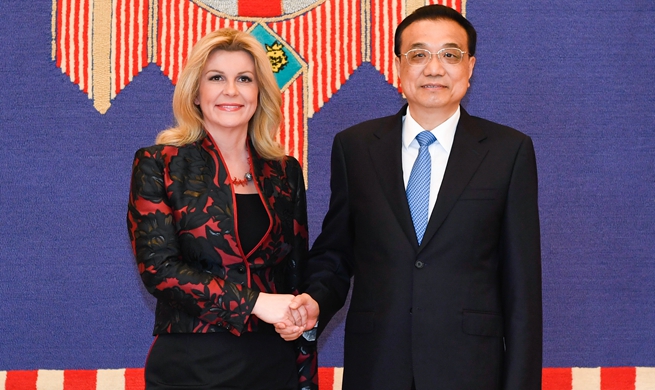WASHINGTON, April 10 (Xinhua) -- With global growth slowing and uncertainty rising, fiscal policy should prepare for possible downturns, balancing growth and sustainability objectives, the International Monetary Fund (IMF) said Wednesday.
"Fiscal policy decision makers should be aware of elevated public debt ratios, financial vulnerabilities and downside risks to nominal growth," Vitor Gaspar, director of the IMF's fiscal affairs department, said at a press conference in the newly released biannual Fiscal Monitor.
"Public debt levels are significantly higher across all country groups than before the global financial crisis," Gaspar said.
The IMF on Tuesday lowered its global growth forecast for 2019 to 3.3 percent in its newly-released World Economic Outlook (WEO) report, warning of downside risks.
"For most countries, getting their fiscal houses in order means preparing for the next downturn or financial crisis," Gaspar said, adding that country specific circumstances are crucial.
The IMF research team suggested countries with high debt increase revenues or curb excessive spending, while in situations where financing is less of a concern, policymakers could boost investment in infrastructure or education to support the economy in the near term, and foster inclusive growth over the next few decades.
"Our analytical, and empirical work has shown repeatedly that countries that build up public finance resilience in good times are in a much better position to manage future challenges as they may occur," Gaspar told Xinhua. "It's good policy in good times so as to be prepared for possible future bad times."
Governments should also be well advised to pursue "smarter and more agile" fiscal policies to facilitate change in face of technological transformation, globalization and demographics, Gaspar said.
According to Fiscal Monitor, upgrading fiscal policy means shifting spending toward growth-enhancing investment while cutting wasteful spending, improving public financial management and raising revenues to create more room in the budget, and improve the tax system to reduce inequality.
The journal also highlighted the issue of corruption, the fiscal costs of which can be "substantial" for economies at all levels of development. Reducing vulnerabilities to corruption requires reforms at home, but it also requires international cooperation, Gaspar said.

















